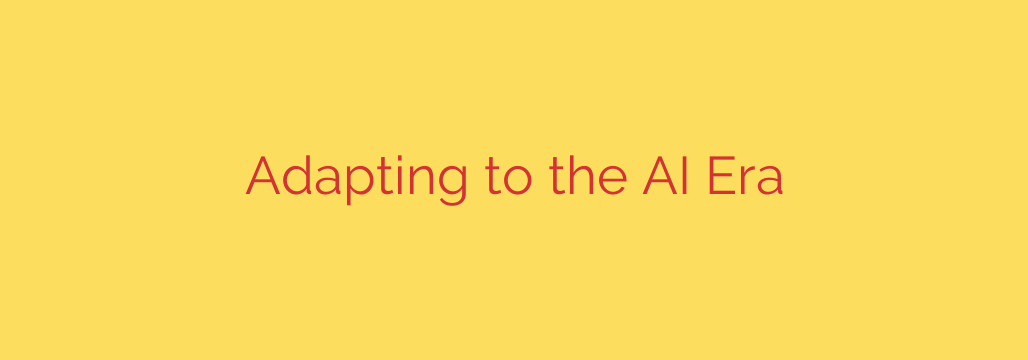
The rise of Artificial Intelligence (AI) is reshaping our world at an unprecedented pace. This transformative technology is moving from theoretical discussions to practical applications across virtually every industry, fundamentally changing how we live and work. Understanding and adapting to this new era is not just an option, but a necessity for individuals and organizations alike.
The primary impact of AI is often seen in the future of work. While concerns about job displacement are valid, it’s more accurate to view AI as a catalyst for job transformation. Routine and repetitive tasks are likely to be automated, freeing up humans to focus on activities requiring creativity, critical thinking, emotional intelligence, and complex problem-solving – areas where AI currently falls short. This shift means the nature of many roles will evolve, requiring new skills and competencies.
To navigate this evolution successfully, lifelong learning becomes paramount. The skills most valuable in the AI era will be those that complement, rather than compete with, AI capabilities. This includes developing strong digital literacy, understanding how to work with AI tools, and cultivating uniquely human traits like empathy, ethical reasoning, and collaborative abilities. Investing in continuous skill development is crucial for remaining relevant in the evolving job market.
For businesses, adapting means more than just implementing AI technologies. It involves a strategic overhaul of operations, culture, and workforce development. Companies must identify how AI can enhance productivity, innovation, and customer experience, while also preparing their employees for the changes. This includes providing training, fostering a culture of adaptability, and considering the ethical implications of AI deployment. Leaders must champion this transformation from the top.
Furthermore, societal adaptation is required. Governments, educational institutions, and communities must collaborate to build infrastructure that supports a future where AI is integrated. This includes rethinking education systems to prioritize future-ready skills, developing policies that address the economic and social impacts of AI, and ensuring equitable access to the benefits of this technology.
The challenges presented by AI are significant, including data privacy, bias in algorithms, and the need for robust ethical frameworks. However, the opportunities for innovation, economic growth, and addressing complex global problems are immense. By proactively embracing change, focusing on continuous skill development, and fostering collaboration, we can effectively adapt to the AI era and shape a future that leverages the power of this technology for the benefit of all. The key is adaptation, learning, and a forward-thinking mindset.
Source: https://datacentrereview.com/2025/06/future-proofing-for-ai/








